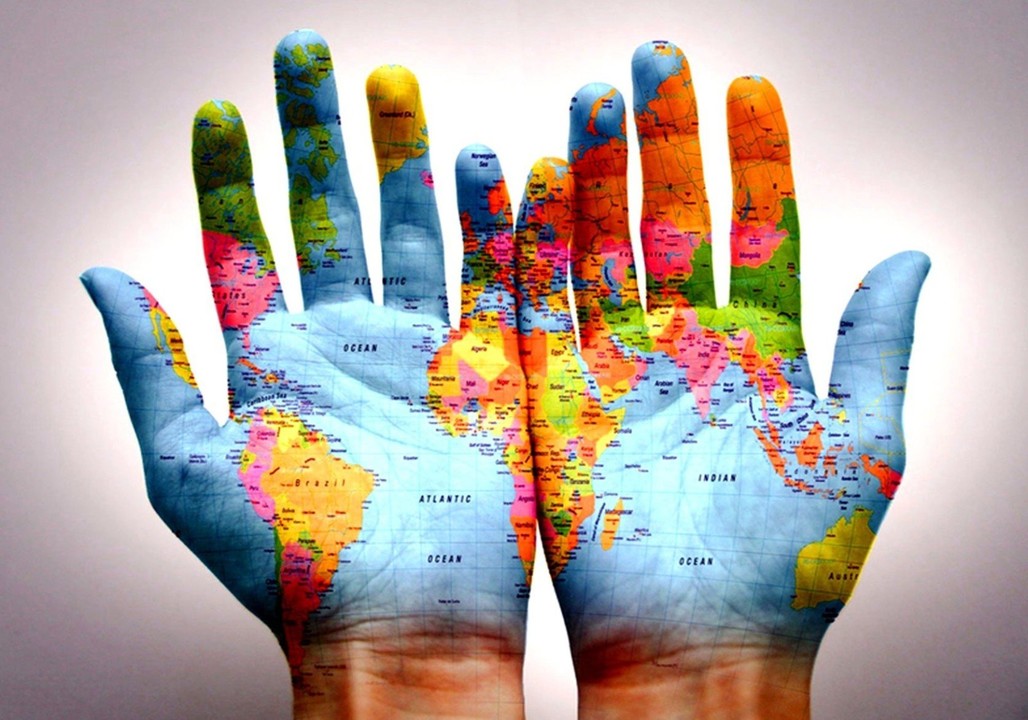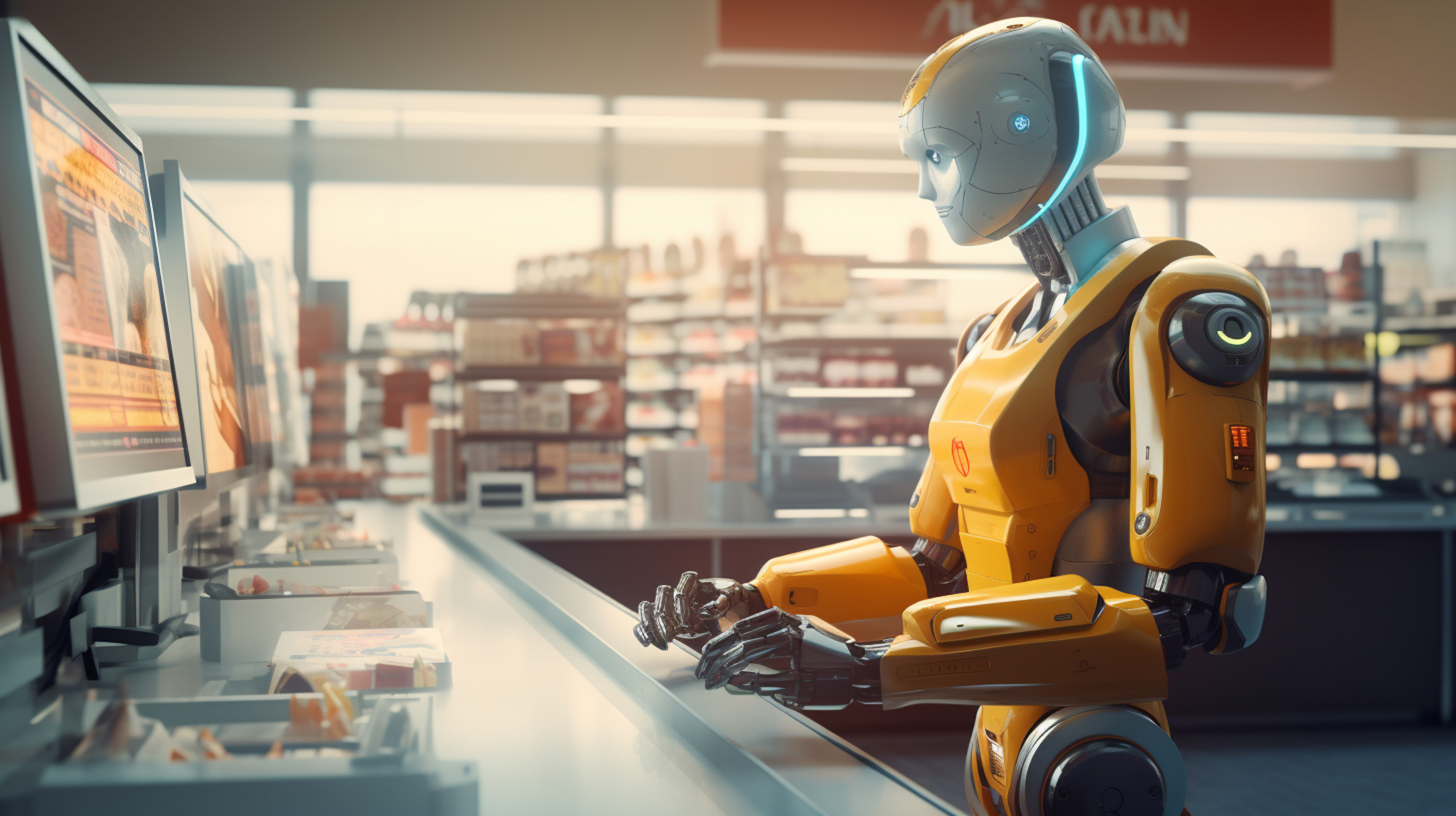TRUTH BE TOLD
Something big is happening, and something new is emerging.
Everyone seems to know everything yet no one seems to know anything, it’s a funny feeling, a strange phenomenon. Even the so-called industry veterans, pundits, and future predictors are breaking their heads. What’s happening?
Is it just another economic cycle, a valley after a peak? NO!
Till a few weeks back, there was a lot of talk about Great Resignation, Great Reset, Quiet Quitting, Work From Home, Work From Anywhere, Moonlighting, 4-day work week, and a lot more.
Now, the news is full of global layoffs - companies around the globe started with a hiring freeze and now started laying off, not in a small number, we are hearing about cutting 50% of staff.
What is going on? Within a span of a few months (or weeks), there is a trend reversal. Is it really a trend reversal?
Established patterns are being broken, and conventional models are getting shattered. Everyone has pretty much realized that there is a new change, a big one happening. We just do not know what this new change is that is shaping up and what is going to happen.
What’s happening? Where are we headed? Is it just another passe or is a new trend emerging?
We seem to be at the cusp of a profound socio-economic shift & a new revolution that will shape our work & life.
Corporate Jobs
Corporate jobs are bondage, it’s indirect bonded labor. Yes, they give security (really?), regular income, stability, and more. But they also force us to leave when they want. While working, they make us think and act in a certain way, leaving very little or no room for freedom or innovative thinking. It’s mundane: get hired, get fired, or get retired as per corporate wish and will.
Everyone goes to school, and college, picks a job, works for a few companies, and retires, lucky if one does get fired a few times along the way. The (corporate) world managed to put us in a framework: study as they say, work as they pay, and retire when they nay. The world had become a manufacturing hub of workers: white-collar, blue-collar, or whatever-collar.
There is a change, a big change happening in recent years. People's thought-process and their expectations of work & life are changing. As old generations are retiring and new generations are coming out, the world of work is up for a big change.
In a few years, the millennials and GenZ will form the majority of the workforce. What do they want? What are their aspirations? Do they even like the concept of a job? Or is their definition of a job completely different from what it is today?
This new generation does not want the mundane stuff. They want liberty, freedom of work, freedom of expression, and a lot more. Gone are the days of sticking to the same job for decades as life goes on. GenX was happy doing that. GenY and Millennials were sort of okay okay with short to medium tenures in a job, but GenZ? A big NO.
Millennials started switching jobs quickly and did not shy away from experimenting. We can see that the majority of new-age entrepreneurs are from this age group. If we extrapolate from what has been happening, the changes on the world stage, and GenZ’s thought-process and aspirations, a completely new scenario is emerging.
Let’s get to the bottom of the puzzle.
The whole employment, jobs, and employer-employee relationships are fairly new to humans. How old are they? 100years, 200? It is a very new thing in human evolution. Human beings have always been nomads for many, many millenniums. This whole office thing is a recent phenomenon.
As soon as the job revolution came, it looked wonderful, a stable job, regular income, secure and safe. What more could one have wished for? People in the first generation picked up a job and mostly stuck to it for the rest of their life.
As the second and third generations got into jobs, they switched slowly in the beginning and rapidly as time progressed. In the times of Information Technology and the internet, the change of jobs is so rapid that the lines of permanent jobs and freelancing are blurring.
What about millennials and GenZ? They want interesting and challenging stuff almost on daily basis and just do not like mundane stuff. They are ready to give up jobs and stay home doing their pet projects than work on mundane tasks.
Against this backdrop, let’s understand what the “Future of Work” holds, where are we headed? Is the concept of jobs getting redefined?
Moonlighting
Moonlighting has recently been in the news and is a much-talked-about subject. The big IT consulting firms are making it a big deal.
Is moonlighting bad? Is it unethical? Do organizations own their employees?
Is it? Do organizations own their employees? Is it some kind of slavery? What times are we in?
Yes, there could be a clause in employment but is it time to relook at that clause?
Some IT service companies in India have even let talent go because of their second job aka moonlighting. Was it a second job? Or was it the right utilization of their time?
If someone is able to do a second job or work after office hours and add value, does it not mean he/she has a lot of potentials but his company is not able to use that potential?
It is the human urge to always want to do something, an expression of interest to do better than yesterday - it is not the question of integrity but the motive to utilize one's time effectively to do stuff, solve different problems, and deliver value.
If the work is chasing employees who are already in jobs but not those who are still looking for jobs, does it mean there is enough work in the world but not enough employment? Does it mean the conventional way of employment, jobs, needs to be completely relooked at?
Are we still in the age of restricting someone to not work to their potential? Not allowed to express their capability, capacity, or value addition?
People working in jobs, are they owned by their organization? Do organizations own their employees? Is it some kind of slavery? Bondage? What times are we in?
Why are we still in the age of employment bands? Certain employees with certain experiences fall into certain bands, and they receive certain pay. What? Still, in this age and times? Are we kidding ourselves?
Do people want work or do they want jobs? Is it time to redefine the employment models, or let’s call them work models? Is it time to make the “Future of work” a reality?
Employment Model
We are still continuing what has been in the practice for decades and centuries, i.e., positioning people in specific bands with certain responsibilities and pay. It’s time to change that model.
Let’s not make a mistake, the conventional models have worked exceptionally well till now. Let’s also not make the mistake that they are not the right models for the times to come.
It’s time to remove the restrictions and allow people to express themselves, and their work freely and be recognized and compensated.
If we do not change, the change will change us.
What Moonlighting is today will become Sunlighting, that is, people resign in masses and stick to only their side work, which would be a disaster. So, let’s accept the reality and amend the ways talent gets hired, work happens and people are paid. Consulting business's main responsibility is to have the right talent onboard and deliver the work to the customer.
As discussed before, if the work is chasing the talent who is already working elsewhere, it means there is enough work but a scarcity of talent, the right talent who can deliver the desired outcome.
What a full-time employee can do alongside the job has been very limited until now. Any outside work, pet projects, and investment in their dreams have been limited to a small percentage of this talent.
It is time to define a new model that lets talent take up multiple assignments, deliver the work and also groom new talent. It is time to break conventional corporate models for both work delivery and talent grooming. This solves the hunger for talent as they do what they wish to do, serves the industry’s purpose of getting the work done, and also develops the next pool of talent.
Of late, it is possible and is getting practiced widely where tech work has been broken up into bits where people can spend 2-3 hours and make it and deliver it. Tech enables people to work globally and get paid much better for smaller pieces of work.
Open Talent Model
The open Talent Model is where organizations adapt to the platform models wherein the work is distributed among talent around the globe. This paves way for the organizations to utilize the best talent sans employment, sans boundaries.
On the other hand, talent can serve multiple companies without the need to get hired. Great minds around the globe come together, form teams, and service enterprises in a simple, secure, and reliable way. These experts can form teams with like-minded people, build products and serve their dream companies. It is a simple and powerful construct of the new talent model.
This model does not completely remove full-time employment. Yes, there is a lot of work, especially IP-bound work, organization’s confidential work that must be done by the full-time employees. At the same time, there is an enormous amount of work that can be platformed and can be done by open talent.
Open talent models provide on-demand services at scale. This removes the fear of organizations being unable to get the talent when needed. On-demand services models remove all the non-value add layers & overheads and provide a way for organizations to get their work done in pay per task model.
It also enables businesses of all sizes, be they small, medium, or big to be able to tap into the right talent. The removal of talent ownership opens the door for innovation at speed. Business Units can now innovate at speed as they have the whole world’s talent at their doorstep just waiting to be tapped.
There are multiple platforms offering “Open Talent” models, however, they are hands-off, i.e., they are purely matchmaking platforms not providing ownership of delivery or quality. We need a platform that provides the scale and speed of the platform and also provides the comfort of a partner.
New Work Model
For organizations to be able to adapt to the “Open Talent” model, and for the model to be successful, organizations need to relook at their Work Breakdown Structures. They need to adapt to new WBS models where individually deliverable units can be distributed among disparate teams around the globe. This restructuring of work plays a central role in the new models to effectively work.
Agile methodology has revolutionized work and disrupted conventional delivery models. It has removed lengthy design cycles, unwanted documentation and focused on delivering working software. It has been working great, the scale of adaptation is a testimony of the same.
Agile is still not agile enough as it takes a significant amount of time to hire and ramp up the teams before delivering anything. Agile philosophy was to quickly respond to changes, but it does not provide a way to get people onboard rapidly and it also does not specify how to utilize the talent rightly. There is a need to relook at talent from a whole different perspective.
Individual teams in organizations are territorial in nature. As some teams are fully staffed and are waiting for the work, other teams within the same organization are bleeding for resources. This leaves both teams frustrated with one team being unutilized and another team for lack of resources. Organizations surveyed have broadly accepted that resource availability, hiring, and attrition are the major cause of project failures.
With the Open Talent model, new WBS, and on-demand Services, organizations can now hit the market with the features and speed required for their products. This is adding capacity and capability on top of the existing Agile methodology, let’s call this Agile++.
Remote Working
The world of work was on the verge of change, and the pandemic expedited the change by at least 10 years. It pushed everyone to work from home and proved that “Remote Working” works. Whether we agree or not, remote working is here to stay. Whether it is partial remote working or full remote-working, it is here to stay.
People’s inclination towards working from anywhere, freedom, and flexibility combined with technological advancements such as connectivity, will make Remote work more of a norm than an exception. In this realm, will companies continue to operate in the old models? Will they just hire talent in remote places and start managing them? Will people join a company remotely and work for them?
Companies hiring remote talent, and people joining a company remotely is a passing phase towards a bigger picture that is emerging. Will companies be interested in managing remote talent, their aspirations, availability, benefits, legal and more? Certainly not. Companies will look for simpler solutions that help them focus on the business. Talent on the other hand will continue to look for flexibility and operational freedom.
Companies around the globe asking their employees to come back to the office are realizing that it is not an easy task. Many surveys also inferred that employees working currently from home would like to continue for the foreseeable future OR forever. In many cases where companies are forcing employees to return to the office, people are willing to let go of their jobs than to return to the office. Who saw this coming?
This tussle will go on for some time and will soon settle down. Work and Office are not and will not be synonymous anymore.
Life 4.0
There is a lot of talk about Industry 4.0, Web 3.0, Internet 5G, IoT, AR, VR, Metaverse, and a lot more. There are debates as to what’s the next big thing. Different people have different opinions, mostly inclined to what they are working on or where they have invested their time & money.
In reality, it is none of the above or all of the above. None of the above technologies on their own will be the next big thing, all of the above will be the constituents of the next big thing.
In human evolution, in Life 1.0, humans lived in caves, and atop trees, and predominantly survived hunting. It was a simple life, getting up in the morning, hunting, eating, and sleeping.
In Life 2.0, humans moved near water bodies, relied mostly on agriculture, grew crops, ate cooked food, slept, and also stored grains for the days to come. This was also when small industries came up. People lived in houses, mostly in small settlements and villages.
In Life 3.0, the industry revolution took shape. People moved wherever jobs existed, big companies came up, manufacturing, and services grew rapidly, and cities thrived. Then IT and the Internet came along, taking the evolution to a whole new level.
What next? What’s in store in Life 4.0?
If we connect the dots well, extrapolate the information, look back and look forward, and take all the new evolutions into account, we get a picture of how Life 4.0 is going to be. People will be on the move, without permanent settlement, live in different places, and roam around the globe. They work on the move and study on the move.
Borders will be erased, current Nation-State concepts will die, and Global Citizenship will emerge. This will be the era of Online Communities, a real internet revolution. Borderless Nation-States will emerge, and true democracy will take shape where leaders from anywhere and any background rule their respective communities located everywhere in the world. The convergence of physical and digital lives will happen, and Social and Work will also be converged.
Existing models of jobs, work, house ownership, and car ownership will die. New platforms will emerge, that will enable a digital workforce ecosystem, global citizenship, house subscription, car subscription, and making the whole world a true Digital Global Village.
New World Order
In the “New World Order” where people roam around the world freely, work anywhere, and live in different places for the duration they wish to, a whole set of new systems will emerge. For the context of this article, let’s stick to the aspects of work.
New patterns such as “Work on the move” will take center place. This will be a game changer for many industries such as Technology, Travel, Insurance, Banking, HR, Communication, and more. The concept of weekdays and weekends will disappear as people will have the liberty to work when they want to.
For the majority of the workforce, it is not about getting a job in a certain company but it will be about getting the right work for their skills, interest, and experience. Resumes will die, and work history will not be about the tenures in different companies but rather it will be about the work they have done, contributions they have made, and problems they have solved. Like the parallel with the sociological construct, there will be a shift from corporate monogamy to corporate polygamy to corporate polyandry.
For companies, it is not about hiring resources but about the outcome. The world will move from “Resource Ownership” to “Resource Utilization”. A lot of non-value add work, layers, and hierarchies will die. It will be a completely outcome-driven economy that will shape and rule the world.
In this new model, anyone along with like-minded people will be able to form teams around niche services, products, and skills. Platforms enable them to provide services to companies globally and sell their products to a readily available market on the platform.
The platform models empower smaller teams and enable them with tools, access, and mechanisms to serve global companies, and solve complex problems will create an equitable world.
According to the statistics and the trends, full-time professional careers will die, but work will exist, although a stark change will be observed in the nature of work people will be pursuing. People need flexibility and job satisfaction.
It helps the company to acquire less office space. With the platform model, all (or most) of the corporate offices will transform into co-working spaces. This enables talent to get into any nearest co-working space on-need basis and work from there. This gives them the flexibility of WFH yet allows them to connect with other people.
If we observe the peaks and valleys of markets, we can safely infer that there is always enough work but not enough employment. If we shift the employment models towards platform models with a focus on an outcome-based approach, there will always be enough work for everyone.
Decentralization also means not locking someone up, applicable to both the companies and talent. Current models lock up companies and make it extremely difficult for them to move on to another partner. Instead, the platform models remove this stickiness completely as companies will leverage the global teams/talent in a seamless manner.
It also empowers novice individuals and teams with a platform to express their work not just in the form of resumes or brochures but with real work and products. GitHub is a great example. It gave developers across the globe the ability to express their skills in a manner that the world understands their capability with all transparency. Until that point, they could only express themselves through profiles. The platform models of work will do the same by distributing work to niche teams around the globe.
COVID created a lot of mess but it has also brought light to different ways of working. It definitely has advanced our ability to work from anywhere. People will avoid commuting and move from cities to smaller towns, thus spreading the opportunities to all corners of the world. They get to live in bigger and better houses and spend more time with their families. Parents who earlier used to hire babysitters can balance both work and family.
Everyone knows everything yet no one seems to know anything. That is because many things are unfolding, and many changes are happening all at once. Our brains are trying to process these changes all of it at once hence the confusion. This will settle down, and a new reality sets in.
This new world order will be a beautiful thing, when everyone explores the whole world, it is no longer you and me, your race and my race. All colors, castes, and creeds will be dead, we will all be one, the global citizens. Just imagine how wonderful it will be.




